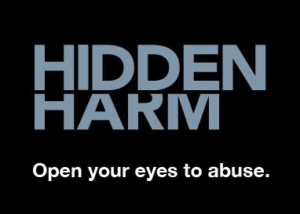 Recently, my team and I attended a training session on modern slavery provided in Wycombe by Hope For Justice, a charity which aims to bring an end to modern slavery by rescuing victims, restoring lives, and reforming society.
Recently, my team and I attended a training session on modern slavery provided in Wycombe by Hope For Justice, a charity which aims to bring an end to modern slavery by rescuing victims, restoring lives, and reforming society.
I remain truly shocked about the scale of the problem in the UK.
Slavery and human trafficking exists in almost every town and city across the UK. I’m appalled that the moral outrage of slavery persists in the UK today, so many years after it was made illegal.
Almost 21 million people worldwide are victims of forced labour – 11.4 million women and girls and 9.5 million men and boys. In the UK, the Home Office estimates that 13,000 people from 103 countries are victims of Modern Slavery today.
Modern slavery is discribed as:
The illegal exploitation of people for personal or commercial gain. It covers a wide range of abuse and exploitation including sexual exploitation, domestic servitude, forced labour, criminal exploitation and organ harvesting.
Victims of modern slavery can be any age, gender, nationality and ethnicity. They are tricked or threatened into work and may feel unable to leave or report the crime through fear or intimidation. They may not recognise themselves as a victim.
I first became aware of the scale of the horrendous crime of modern slavery in 2013 when I joined the All Party Parliamentary Group Against Human Trafficking. It was this group that first suggested the term ‘slavery’ should be used  when discussing how to combat this crime.
when discussing how to combat this crime.
In 2014, with the support of the then Home Secretary Theresa May, we introduced the Modern Slavery Bill to Parliament, to strengthen legislative framework to support victims and to pursue the perpetrators.
The Government now wants to go even further. In total, the UK will double its development spending on modern slavery to £150 million, enabling more work in collaboration with source and transit countries. This will include an investment of £20 million in the new Global Fund to End Modern Slavery, partnering with the United States to provide seed funding for this new initiative, which it is hoped will leverage $1.5 billion to address the resourcing gap for modern slavery.
 The work being done by organisations like Hope For Justice is highly encouraging. In particular, I am pleased to see the work being done locally by Thames Valley Police through their Hidden Harm campaign. The campaign aims to raise awareness of abuse happening in the heart of our communities across Berkshire, Buckinghamshire and Oxfordshire.
The work being done by organisations like Hope For Justice is highly encouraging. In particular, I am pleased to see the work being done locally by Thames Valley Police through their Hidden Harm campaign. The campaign aims to raise awareness of abuse happening in the heart of our communities across Berkshire, Buckinghamshire and Oxfordshire.
If you need help or advice to combat modern slavery, please contact the Modern Slavery Helpline.